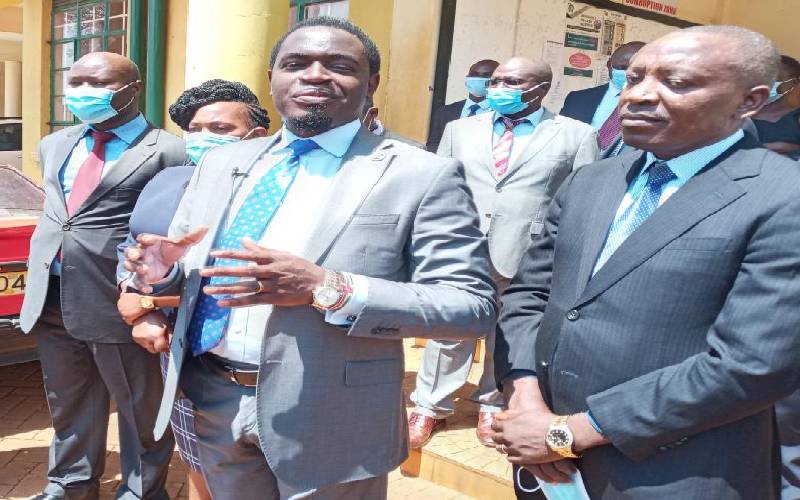×
The Standard e-Paper
Fearless, Trusted News

LSK President Nelson Havi (second from right) at the Busia Law Courts on October 8, 2020. [File, Standard]
Lawyers have waded into the political storm pitting President Uhuru Kenyatta and his deputy William Ruto by challenging the government's decision to ban public gatherings.